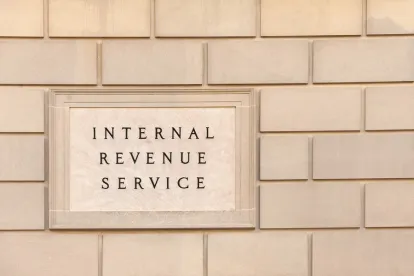On May 12, 2020, the Internal Revenue Service (IRS) issued Notice 2020-33 (the Notice), which increases the maximum health flexible spending account (FSA) carryover limit. The Notice also addresses a gap in existing guidance related to reimbursement of individual insurance premiums by an individual coverage health reimbursement arrangement (ICHRA). Along with the Notice, the IRS also issued Notice 2020-29 to provide temporary relief related to the cafeteria plan mid-year change in status rules (Notice 2020-29 is discussed in our earlier blog post, here).
Expansion of Health FSA Carryover Amount
A cafeteria plan may permit a participant to carry over up to a specified amount of unused health FSA contributions at the end of one plan year, to be used to pay or reimburse a participant for medical care expenses incurred during the following plan year. Prior to the publication of the Notice, the cap on the amount of unused health FSA contributions that could be carried over was $500 and was not indexed for inflation. The Notice changes how the maximum carryover limit is determined for each year – instead of a static, flat dollar amount, the carryover limit now equals 20% of the maximum annual salary reduction contribution that can be made to a health FSA for a given year. In 2020, since the limit on health FSA salary reduction contributions is $2,750, the carryover limit is increased to $550, and the carryover limit will increase in future years in step with increases to the health FSA salary reduction limit.
As a general rule, if an employer decides to add a carryover feature to its cafeteria plan or decides to increase the carryover limit under its cafeteria plan, the plan generally must be amended on or before the last day of the plan year from which amounts may be carried over. However, the Notice (together with Notice 2020-29) extends the amendment deadline for the 2020 plan year, allowing until December 31, 2021 for an employer to amend its cafeteria plan to increase the annual carryover limit and/or to reflect the new indexing approach to determining the carryover limit for a given year1. The amendment may be effective retroactive to the first day of the 2020 plan year, provided the employer operates the plan in accordance with the guidance and informs all employees eligible to participate in the plan of the increased carryover limit.
The Notice also reiterates that, consistent with the relief in Notice 2020-29, an employer may amend its plan to permit mid-year changes to health FSA elections through December 31, 2020. If an employer adopts the 2020 temporary relief for mid-year health FSA election changes, employees may have the opportunity to increase their health FSA contributions (or enroll in a health FSA) during 2020 in response to the increased carryover limit.
Reimbursement of Premiums from ICHRAs
ICHRAs are health reimbursement arrangements (HRAs) that are integrated with individual health care coverage. Prior to the regulatory guidance allowing ICHRAs, an employer was prohibited from offering an HRA that reimbursed employees for the cost of individual health insurance coverage. Pursuant to final regulations issued in 2019, an employer may set up an ICHRA and make contributions to the ICHRA for employees to purchase coverage in the individual marketplace or Medicare, provided certain requirements are met.
Generally, health plans, including ICHRAs, may reimburse an individual for medical care expenses on a tax-free basis only if the medical care expenses are “incurred” during the plan year for which the individual is covered by the plan. Medical care expenses are treated as “incurred” when the covered individual receives the medical care, not when the expense is billed or paid. In the Notice, the IRS acknowledges that this general rule raises administrative issues for an ICHRA in situations when a participant must pay all or part of the premium for health insurance prior to the first day of a plan year. For example, an individual may pay the premium for coverage beginning January 1 of a given year in December of the prior year. In such a case, under the general rule the health care premium would not be reimbursable from an ICHRA because the premium expense is incurred outside of the plan year.
The Notice addresses this administrative issue for ICHRAs by providing that a plan may treat an expense for a health insurance premium as “incurred” on: (1) the first day of each month of coverage on a pro rata basis, (2) the first day of the period of coverage or (3) the date the premium is paid. This means, in the example above, an individual with an ICHRA could have his or her premium reimbursed for coverage beginning January 1 even though the premium was paid in December of the prior year.
1 Although the carryover limit was not subject to indexing prior to the Notice, some cafeteria plans may permit carryovers “up to the maximum amount allowed by the Internal Revenue Code” or use similar language to describe the carryover feature. Therefore, cafeteria plans with carryover features should be reviewed closely to determine if an amendment is needed to reflect the changes in the Notice.






 />i
/>i

